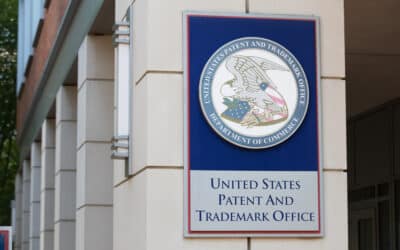The TCPA’s Statutory Scheme
Many ink barrels have been spilled on the risks posed by the Telephone Consumer Protection Act (“TCPA”). For those unaware, the TCPA protects individuals and businesses from those insidious and unwanted robocalls, texts, ringless voicemails, and even faxes (for those who still have a fax machine). As for phone calls, the statute makes it unlawful for any person to initiate a call using any “automatic telephone dialing system or an artificial or prerecorded voice” without the “prior express consent” of the recipient. The recipient of a TCPA-violating call can sue to recover for the greater of actual damages (generally $0) and $500. At the risk of a spoiler alert, litigants generally seek the $500 per call.
Weight Loss, Multi-Level Marketing, and the TCPA
ViSalus is a multi-level marketing company that sells purported weight-loss products direct to consumers. Basically, ViSalus signed up customers (i.e., those who purchased the products) as well as promoters (i.e., those who tried to bring in new customers). As part of the application process, ViSalus asked individuals for their phone numbers, but, critically, did not ask customers for their consent to receive future automated or prerecorded calls.
Lori Wakefield enrolled as a ViSalus promoter in 2012. A few months later, Wakefield discontinued her relationship with ViSalus. Fast forward two years. As part of a new marketing campaign, ViSalus began reaching out to former promoters. In April 2015, Wakefield received five prerecorded audio messages from ViSalus on her home phone. So, Wakefield, having had enough, sued ViSalus.
Class Certification and Trial
The district court certified a class of all individuals in the U.S. who received a call from ViSalus, promoting ViSalus’s products or services, featuring an artificial or prerecorded advice, without first obtaining the individual’s express, written consent. In April 2019, the case went to trial, with Wakefield presenting her case in three days. ViSalus “declined to put on any evidence of its own, and instead argued in closing that Wakefield had not proven her case by a preponderance of the evidence.” The jury disagreed, finding ViSalus had placed 1,850,440 calls in violation of the TCPA. Accordingly, the court ordered ViSalus to pay approximately $925 million in damages.
The Ninth Circuit’s Limited Reprieve
On appeal, ViSalus argued, among other things, that the TCPA’s statutory penalty of $500 per violation, in the aggregate, is so “severe and oppressive” that it violates ViSalus’s due process rights. Without deciding the issue, the Ninth Circuit held that in “certain extreme circumstances,” it is possible for aggregated statutory damages to be subject to constitutional due process limitations. Indeed, the court noted that where “statutory damages no longer service purely compensatory or deterrence goals, consideration of an award’s reasonableness and proportionality to the violation and injury take[] on heightened constitutional importance.”
The Ninth Circuit concluded its decision by ordering the district court to “consider the magnitude of the aggregated award in relation to the statute’s goals of compensation, deterrence, and punishment to the proscribed conduct,” and, once and for all, determine whether the nearly billion-dollar penalty violated ViSalus’s due process rights and, if so, by how much.
By all accounts, this is ViSalus’s final bite at the apple. How the district court will rule remains to be seen.
At Risk Settlements, we are the leader in providing comprehensive, alternative litigation strategies, including class action settlement insurance (“CASI”), litigation buyout insurance, judgment preservation Insurance, adverse judgment insurance, litigation funding and claim monetization. Our team of experienced former litigators, insurance professionals, and risk mitigation specialists helps companies remove the financial and operational volatility arising out of litigation by transferring the outcome risk. If you have any questions about the ViSalus TCPA matter, or if you have a matter you would like our team to review, please contact us today.







